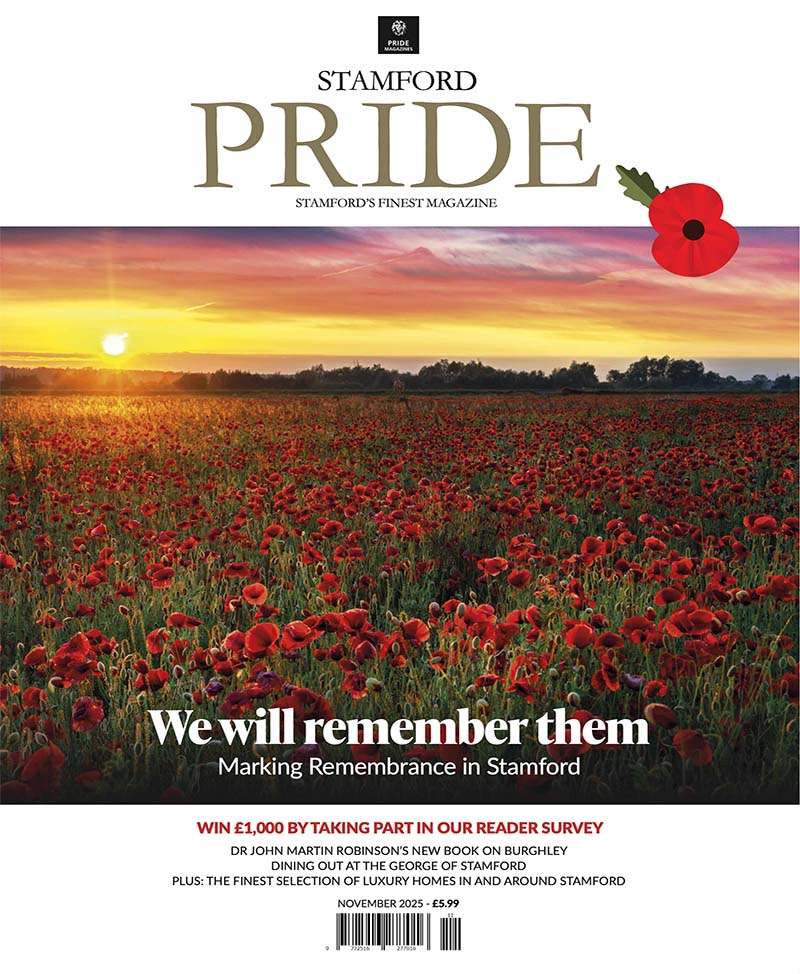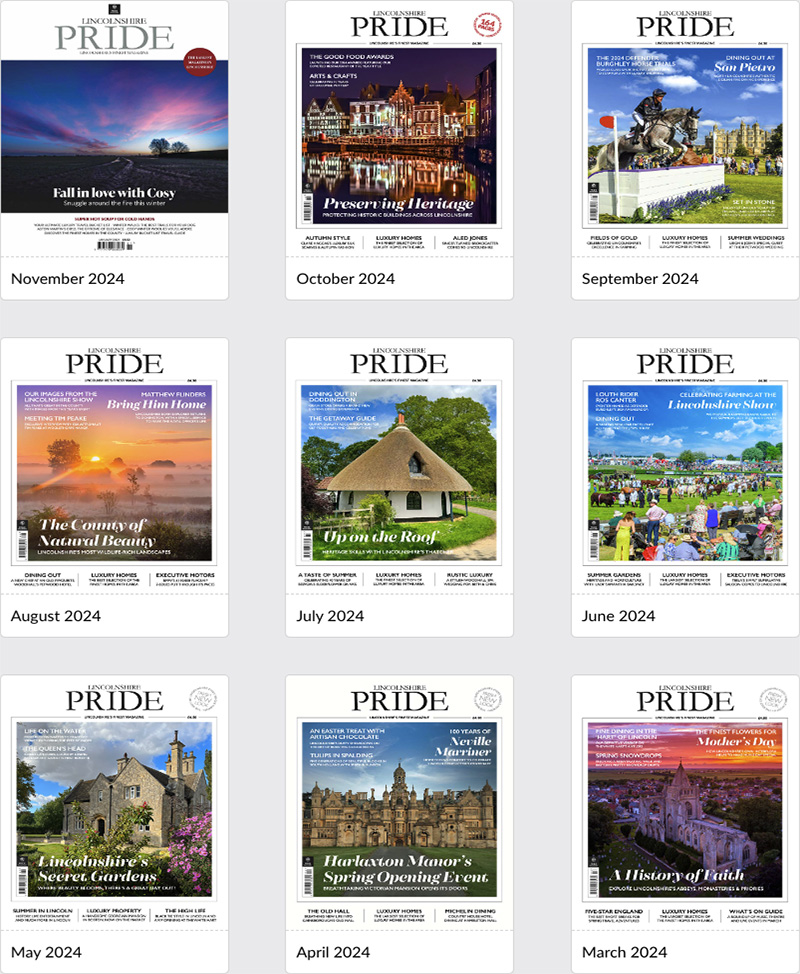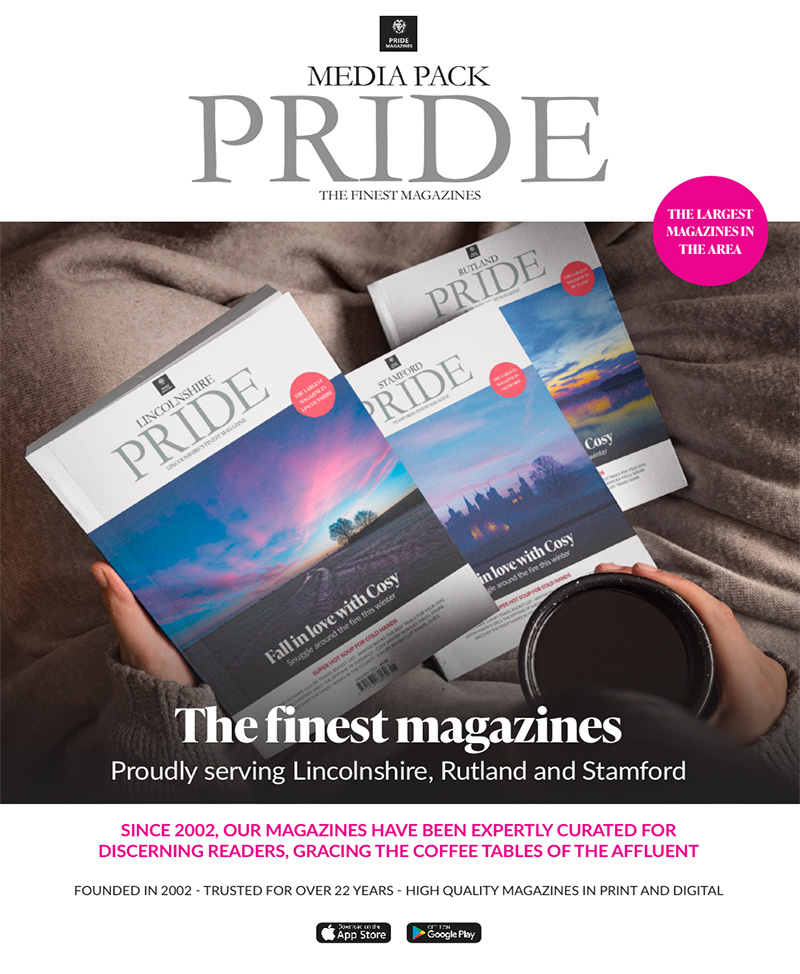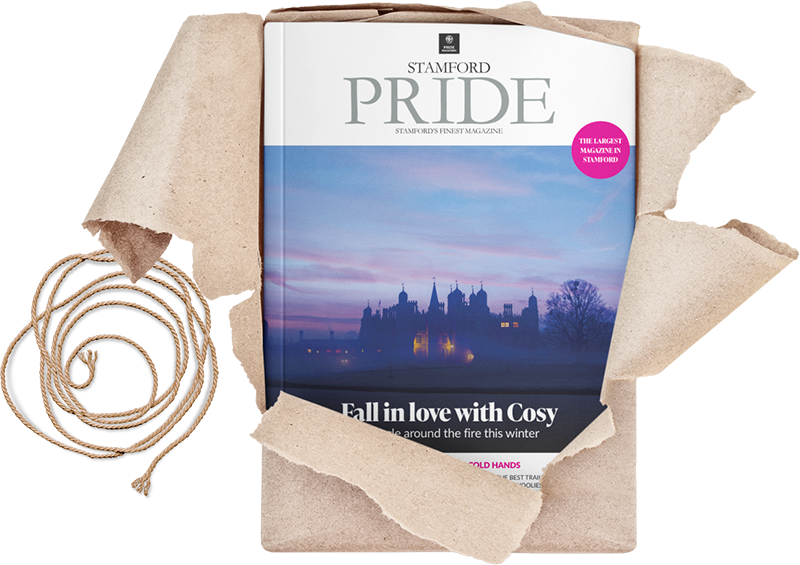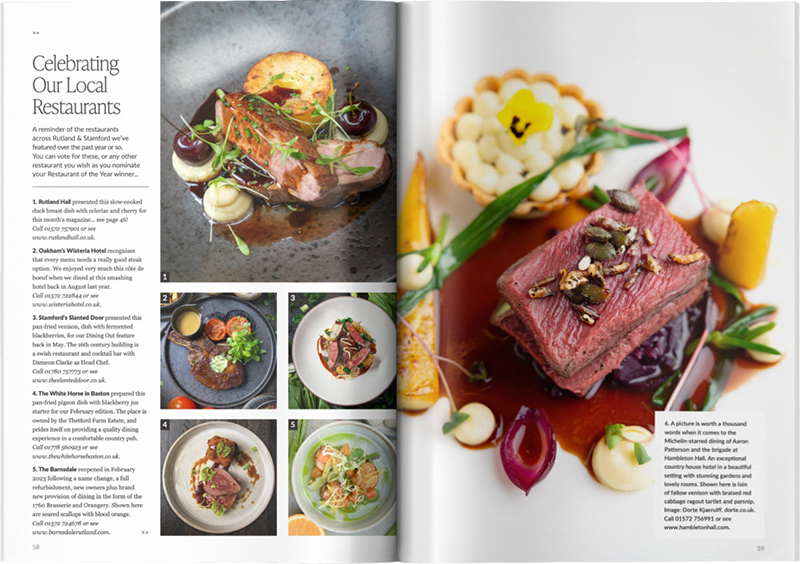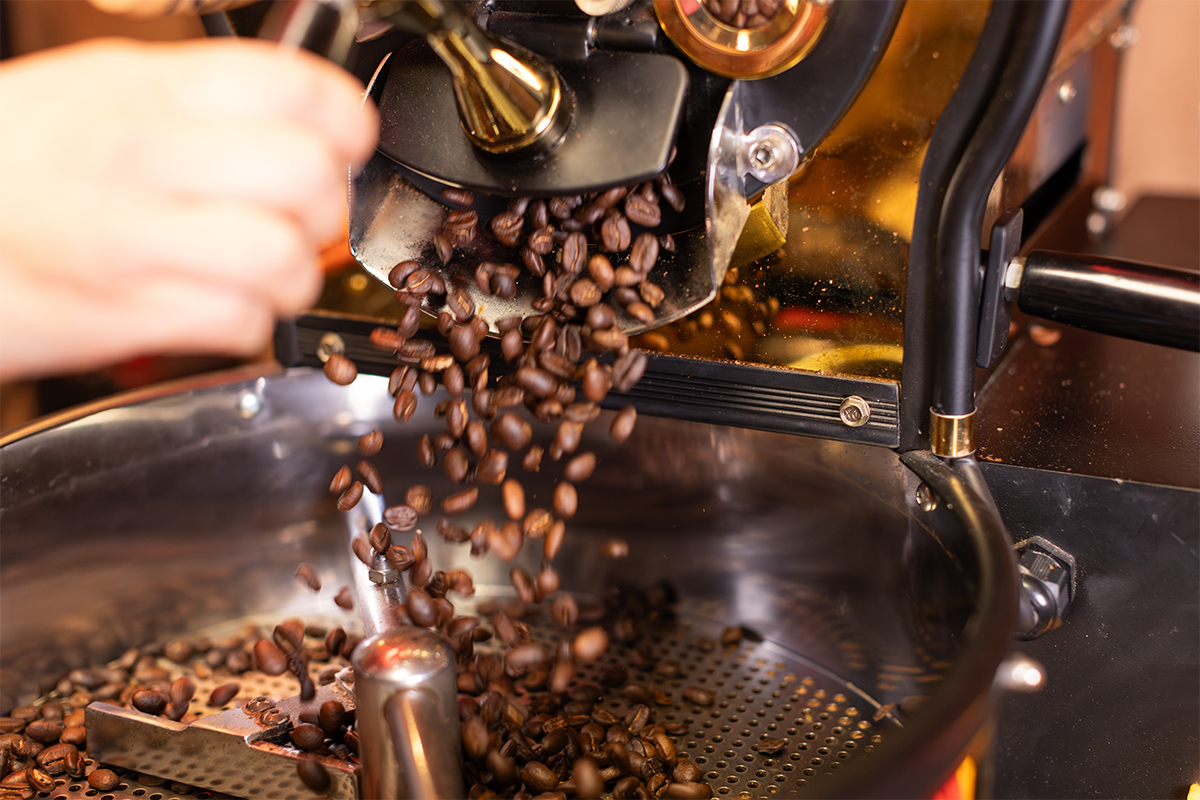
Enjoying Quality Coffee in Stamford
Stamford’s Crispin and Juliet Moger (and their four-legged friends!) are on a mission to transform your morning coffee from the ordinary to extraordinary. This month we enjoy a coffee with the founders of artisan roastery Derwent & Dunne
Last year something extraordinary happened. Coffee overtook tea as Britain’s most popular hot drink. 56% of people stated a preference for coffee, with tea coming second. Of those coffee drinkers, 46% reckoned that a latté was the preferred way to enjoy coffee with cappuccino, flat white and espresso thereafter.
One can but speculate as to the whys and wherefores of British beverage vicissitudes, but those aged 18-27 are keener on coffee than older generations, and spend about £64.50 a month on coffee, rather than the £28 expenditure of those over 60 years of age.
87% of those younger British coffee drinkers describe themselves as ‘coffee connoisseurs’ compared to just 66% of those in their 60s.
What’s more since the mid-2000s alcohol consumption among youngsters has been falling steadily (says the data from the ONS’s Adult Drinking Habits report), which seems to suggest it has fallen out of fashion against young adults meeting friends for coffee instead.
We’ve also seen the rise of big coffee companies in the UK. Britain is the biggest European market for one multinational takeaway coffee brand with sales 22% up on last year and revenues of nearly £550m.
At home, bean to cup machines and pod coffee machines, plus the proliferation of drive-through coffee shops, convenient takeaway coffee delivery to your door and automatic machines in supermarkets and filling stations all mean that coffee is more abundantly available than ever.
And its many permutations – mocha, macchiato, cappuccino, Americano, espresso, cortado… and one retailer’s iced brown oat shaken espresso (?) – all give the impression of choice and premium quality.
On the face of it then, coffee drinkers should be full of beans, leaving tea drinkers mere has beens. However, proper coffee aficionados like Crispin & Juliet Moger of Derwent & Dunne (and their dogs, who all provide the blends’ names) will sound a note of caution, as not all beans – or blends thereof – are created equally.
As a serial entrepreneur, Crispin enjoys establishing businesses, building them up and solving problems. He has a keen eye for creating a brand and noting where there’s a market for a product that improves on what’s offered already.
Crispin is also keen on his morning coffee and signed himself up for several barista and blending courses before establishing the business and even travelled to Columbia as part of his research. His intention was to discover more about what goes into creating the perfect coffee.
The Perfect Coffee
There are plenty of impressive looking machines in coffee shops up and down the country. They hiss and seethe, and they certainly look the part, but Crispin has noted two things.
Firstly, the skill of the barista is important. Secondly, and more importantly, you can’t get good coffee out unless you put good beans in.
Among the problems with scaling up a coffee business to the size of the multinational coffee chains is the insatiable need for coffee beans which necessarily means sourcing at scale. By contrast, artisan coffee roasters are more able to work with smaller local suppliers and blenders, concentrating on quality, not quantity.
Full of Beans
Among the different types of coffee bean available are Robusta and Arabica. Arabica beans are seen as the higher quality however as robusta is generally half the price of Arabica and double the caffeine content it can end up being used in cheaper coffees. Arabica yields a milder, smoother more floral flavour and tends to contain more natural sugars (9% as opposed to 7%) plus less caffeine (1.5% as opposed to 3.5%).
For this reason, bigger coffee blenders tend to use greater quantities of Robusta but smaller artisan roasteries like Crispin’s Derwent & Dunne are more able to leverage the broader flavour potential of Arabica only using the highest quality Arabica beans, apart from when they produce Charlie’s blend, which has a small amount of Robusta added to give it a more Italian flavour
One of Crispin’s niggles with the coffee industry was the use of very arbitrary descriptions of ‘strength,’ which is itself a pretty nebulous concept.
Some retail coffees are sold with a ‘strength guide’ from, say, one to six. This isn’t especially useful for consumers, and so one of the points of difference of Derwent & Dunne’s range of 10 coffees is a more meaningful description of the flavour of each one.
There are seven blends which provide consistency from batch to batch, as well as three single estate coffees for those who really know their beans. Crispin’s coffees are hand-roasted by artisans from specially imported, ethically-sourced beans.
Beloved Namesakes
Each Derwent & Dunne coffee is named after one of the family’s pets, so his most beloved coffee is the namesake of one of his most beloved dogs, Bo.
Bo’s Blend is a dark roast and great place to start your exploration of the brand’s coffee. Its notable flavours are treacle, bourbon and plum, with 100% Arabica beans sourced from Columbia, Honduras, Peru and Brazil.
If your preference is a medium-roast coffee, Etoile’s Blend has stone fruit, grape and spice among its flavours, with Arabica beans sourced from Uganda and Costa Rica.
Never one to leave out tea-drinkers, Derwent & Dunne’s range also includes single origin direct trade teas from Tea Rebellion, with a strong, full-bodied breakfast tea and an African Early Gray, plus herbal, green and white teas with lemongrass, peppermint or passion fruit and peach.
These are available as loose leaf or bio-pyramid bagged teas, and there’s also a superior hot chocolate available that produces a luxuriously thick hot drink that chocolate lovers can enjoy with hot water or steamed milk.
Joy at Home
In the hands of an experienced barista you’d expect a good cup of coffee but Crispin wanted to ensure that he could produce blends of coffee in both bean and ground form, to work equally well with stove-top coffee makers or a bean to cup machine at home too… and even in Nespresso-compatible pod machines: Bo’s Blend and the decaff-Billy blend are available in pod form too.
However you grind your beans at home, experimenting with the coarseness of the grind will enable you to tailor your preferred coffee to suit.
For example, an espresso or cortada necessitates a finer grind to enable the hot (never boiling) water to pass through the coffee in less than five seconds, ensuring it’s not overheated, and doesn’t develop a bitter taste. If your preference is towards a longer coffee like a latte, a coarser grind can yield a steadier release of the beans’ flavour.
Derwent & Dunne’s range has been created to elevate your morning coffee at home and to enable anyone to ensure good coffee isn’t predicated on expensive hardware or dependent on a trip to your local coffee shop. Good coffee, Crispin and Juliet reckon, is a right, not a privilege.
Their blends and single estate coffees are the result of passion, research and a genuine desire to turn your everyday coffee into something exceptional.
In the future, Crispin and Juliet say they may launch a tasting studio in Stamford, perhaps even a café. But for now, their products are available to businesses and to households who want to bring quality and flavour back to your morning coffee.
Derwent & Dunne’s range of blended and single estate coffees, teas and hot chocolate drinks are available via www.derwentanddunne.co.uk or by calling 07462 952703.
See our full feature in the March edition of Stamford Pride at https://issuu.com/pridemagazines/docs/stamford_pride_march_2025


